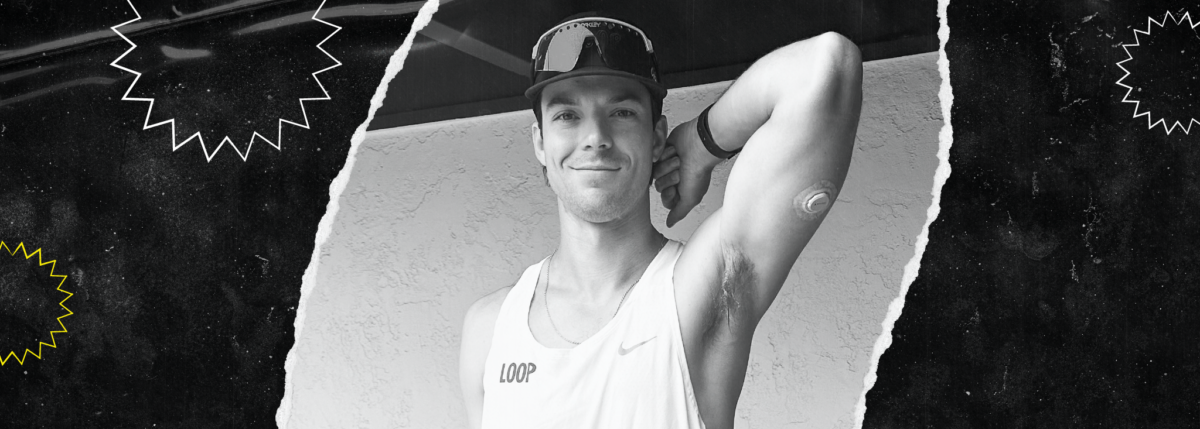Find The Devices You Need: DiabetesWise
Written by: Jordan Dakin
3 minute read
July 31, 2019
DiabetesWise is an initiative from Stanford University School of Medicine and people living with diabetes, dedicated to helping those living with diabetes discover the best devices for them. From the homepage quiz to help you determine the success of your current devices to insightful stories from community members, DiabetesWise is a helpful epicenter of insight specifically in terms of diabetes devices and technology, and functions in part thanks to a grant from the The Leona M. and Harry B. Helmsley Charitable Trust. Beyond Type 1 recently spoke with members of the project’s leadership: Korey Hood, PhD and Sierra Nelmes, project manager and UX researcher.
The inspiration
Korey Hood is a clinical psychologist and professor at Stanford University. His passion for this project stems from his understanding that “people just didn’t have an unbiased resource to find out what’s available to them in the diabetes device world. And there was really not a great place to go for that online.” This issue, he says, was the genesis for DiabetesWise. Hood lives with type 1 diabetes himself and has been at the helm of DiabetesWise since its conception.
Sierra Nelmes has been with the organization since the beginning of this year, and utilizes her background in user experience research and design. Like Hood, what she feels anchors the project’s mission is the drive to be “an unbiased, free, straight-talk resource that engages, nudges and improves the outcome of people living with diabetes.” Both Nelmes and Hood acknowledge that there really is a void to be filled in terms of access to straightforward information in regards to diabetes technology and that DiabetesWise was created to be a personal learning network of sorts.
Another goal of DiabetesWise from the beginning was to gain a better understanding of the various psychosocial, familial and contextual aspects of diabetes. There is such a wide range of factors associated with what makes a patient choose one option over another or discontinue usage of something like an insulin pump or continuous glucose monitor (CGM), according to Hood. The researchers at DiabetesWise are concerned with learning what leads patients to make these decisions and what role a lack of information might play as well.
The project
If you visit DiabetesWise, you’ll find that the homepage features a helpful check up quiz for diabetes management. The quiz asks users to identify the device combinations they’re currently utilizing, and weigh in regarding current feelings about their diabetes management, and the emotional toll it takes, if any. Nelmes says, “In terms of our vision, we really pride ourselves on being able to say that DiabetesWise is built for and by people living with diabetes.” The site also provides patients guides for getting sensors and pumps as well as qualifying for insurance or talking to your doctor.
Another section featured on the homepage—Wisdom—gives users the opportunity to hear from people who have had similar experiences, and used similar device combinations. The personal stories were sourced from a number of people who live with diabetes and were able to share their take on devices in both video and question-answer form.
 By representing real people and avoiding the biases that some clinics or healthcare professionals might have about who should be on devices and what devices in particular, Hood says DiabetesWise “goes directly to the person to try to empower them to advocate for themselves.” The barriers of bias, access and misinformation can start to be removed when patients can freely access information—and the team believes all diabetes patients should have that right. “I don’t think we’re doing a good enough job within the healthcare system of reaching that person,” Hood emphasizes.
By representing real people and avoiding the biases that some clinics or healthcare professionals might have about who should be on devices and what devices in particular, Hood says DiabetesWise “goes directly to the person to try to empower them to advocate for themselves.” The barriers of bias, access and misinformation can start to be removed when patients can freely access information—and the team believes all diabetes patients should have that right. “I don’t think we’re doing a good enough job within the healthcare system of reaching that person,” Hood emphasizes.
What’s up next
DiabetesWise is still in Beta form, and the team is excited to roll out what is essentially the next phase of the check up quiz in the form of a device readiness tool. The hope is users will be able to compare sensors, pumps and other diabetes devices using the tool and compile a personal report that they can then take directly to a care provider. Hood explains that the idea is to give patients direct advice about how to advocate for themselves, how to talk about insurance and how to think about cost, among other things.
The team will be attending the AADE Conference in August and hopes to talk at length with educators, getting feedback on their efforts and more input for their planned real world clinical trial that will launch in the next few months. Other top of mind goals include obtaining more data to get an idea of the variety of patient situations that exist.
Hood acknowledges that the technology space is ever-evolving, and the challenge DiabetesWise will face is continuing to keep up: “We’ve got to make sure that we’re current and how we exactly do that is still an open question, but that’s always something on our minds.”

Author
Jordan Dakin
<a href="https://beyondtype1.org//leadership/jordan-dakin/">Jordan</a> recently graduated from the University of California, Los Angeles after earning her BA in English and Film Studies. She is a passionate storyteller, traveler and lover of people and hopes to use her experience working in tech and as a writer to advocate for the BT1 community. In her spare time, she also enjoys hiking, karaoke and cooking for friends. Check her out on Instagram: <a href="https://www.instagram.com/jordanemilydakin/">@jordanemilydakin</a>.
Related Resources

Danica Collins not only prepared for one of the most challenging physical events of her...
Read more

Beyond Type 1 is spotlighting inspiring athletes with type 1 diabetes as they prepare for...
Read more

On November 3, 2024, Taylor Rindfleisch of Chicago laced up her running shoes for the...
Read more

